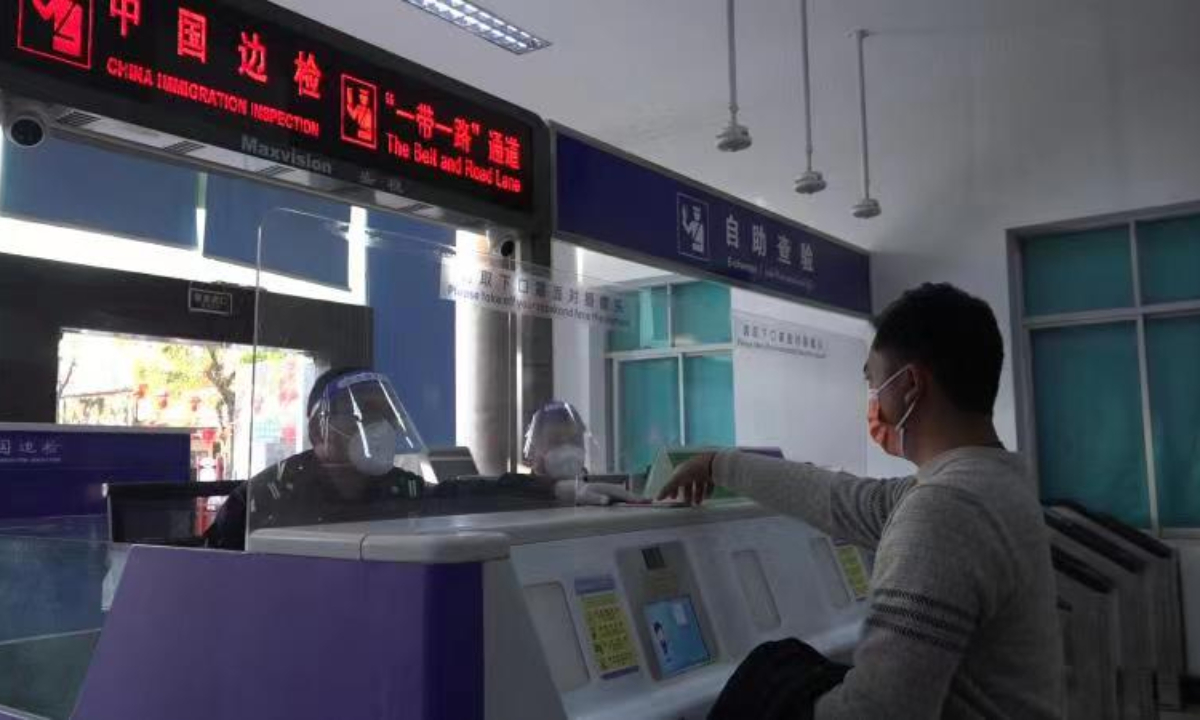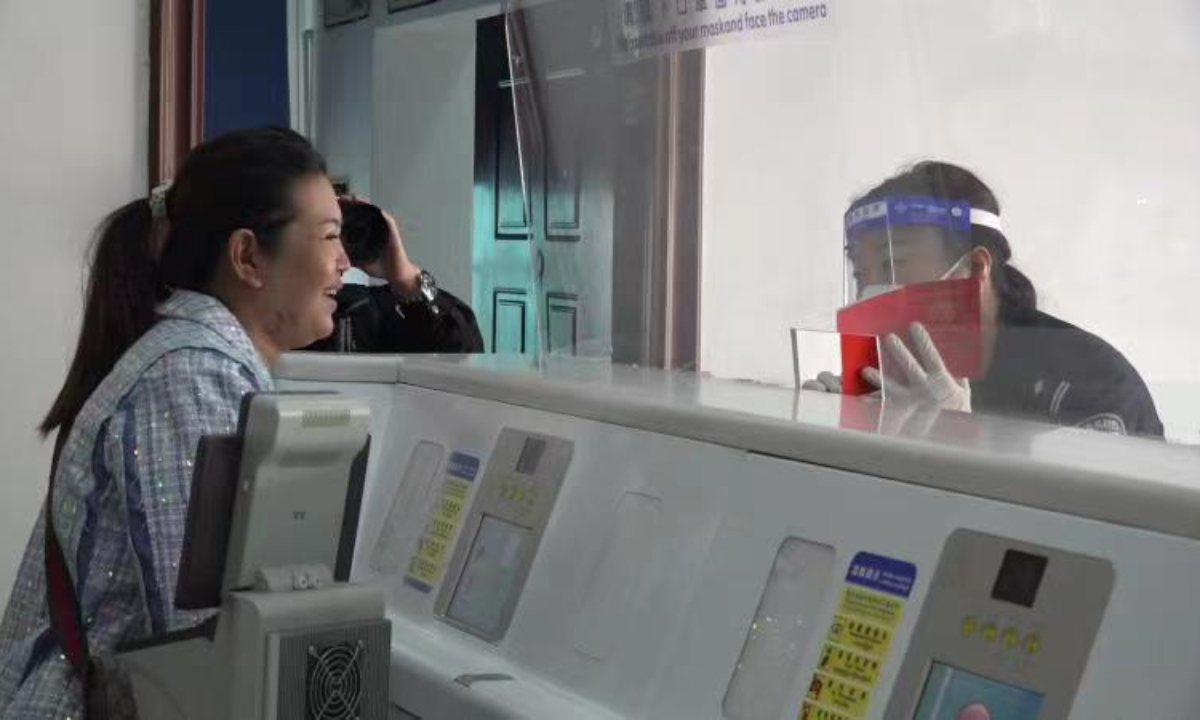
Photos: Courtesy of He Xingyu
The Muse-Ruili checkpoint - a China-Myanmar border crossing crucial to trade and that is also among the busiest in South Asia - fully reopened on Wednesday, after 1,030 days of closure due to the COVID-19 pandemic since late March 2020, the Global Times learnt from Ruili border checkpoint authorities on Thursday.
A steady stream of population flow was being witnessed, as more cross-border inbound and outbound travelers have made their much-anticipated return - most for family reunion - to the opposite country after China downgraded its COVID-19 management from Class A to Class B on January 8.
"My wife and I have a cross-country marriage. I am very excited to finally be able to come to China after three years to meet my wife and children. I am really grateful for both governments," said Myanmar national Than Tun Win who became the first inbound traveler coming to Ruili at 6 pm on Wednesday.
"Full resumption means more opportunities and exchanges, especially for cross-border traders, who can commute in a more convenient and efficient way," said Than Tun Win.

Photos: Courtesy of He Xingyu
Located in Southwest China's Yunnan Province, the Ruili checkpoint is the land port with the largest flow and trade among China's border ports with Myanmar. It is composed of three channels with different functions, which respectively undertake the entry-exit and inspection of personnel, motorcycles and small vehicles, trucks and large vehicles.
Official data show that in 2019, Ruili port had recorded more than 17 million inbound and outbound visits, and more than 17.458 million tons of import and export cargo. The port contributes annual trade value of nearly 100 billion yuan ($14.7 billion) to Yunnan Province, accounting for about 80 percent of the province's trade value with Myanmar.
After the reopening, passengers need only a 48-hour negative nucleic acid result and valid exit or entry documents to go through the port.

Photos: Courtesy of He Xingyu
A Chinese tourist surnamed Wu, who has lived in Ruili for the past three years, also left through the port with his two children via a newly issued exit permit to visit his wife in Myanmar, whom he has not seen in person for the whole three years.
"The reopening has made my dream of reuniting with my family come true. We would like to thank the port staff for providing us with a fast and convenient service on the way," he said, before excitedly running toward his wife waiting at the gate of Muse in Myanmar.
In the past three years, the Ruili checkpoint has comprehensively upgraded a series of supporting cross-border facilities such as smart equipment, a command center and a biological information collection system at the port.
Next, faced with the steady growth of inbound and outbound passenger flow, the Ruili checkpoint will take further effective measures to improve the service.
He Xingyu contributed to this story






